Our Story
We believe every design should tell a story and create an impact.
Ekadesma (एकादेशमा), pronounced Eh-Kah-Desma and meaning “Once upon a time” in Nepali, is a name chosen to tell the story of Nepal’s craftsmanship in a contemporary voice for the modern world. Designed in Seattle and made in Kathmandu, each piece blends heritage techniques with timeless design. Built to last, our clothes move with you from season to season, wear to wear—effortless style that lives with you.
Our Approach
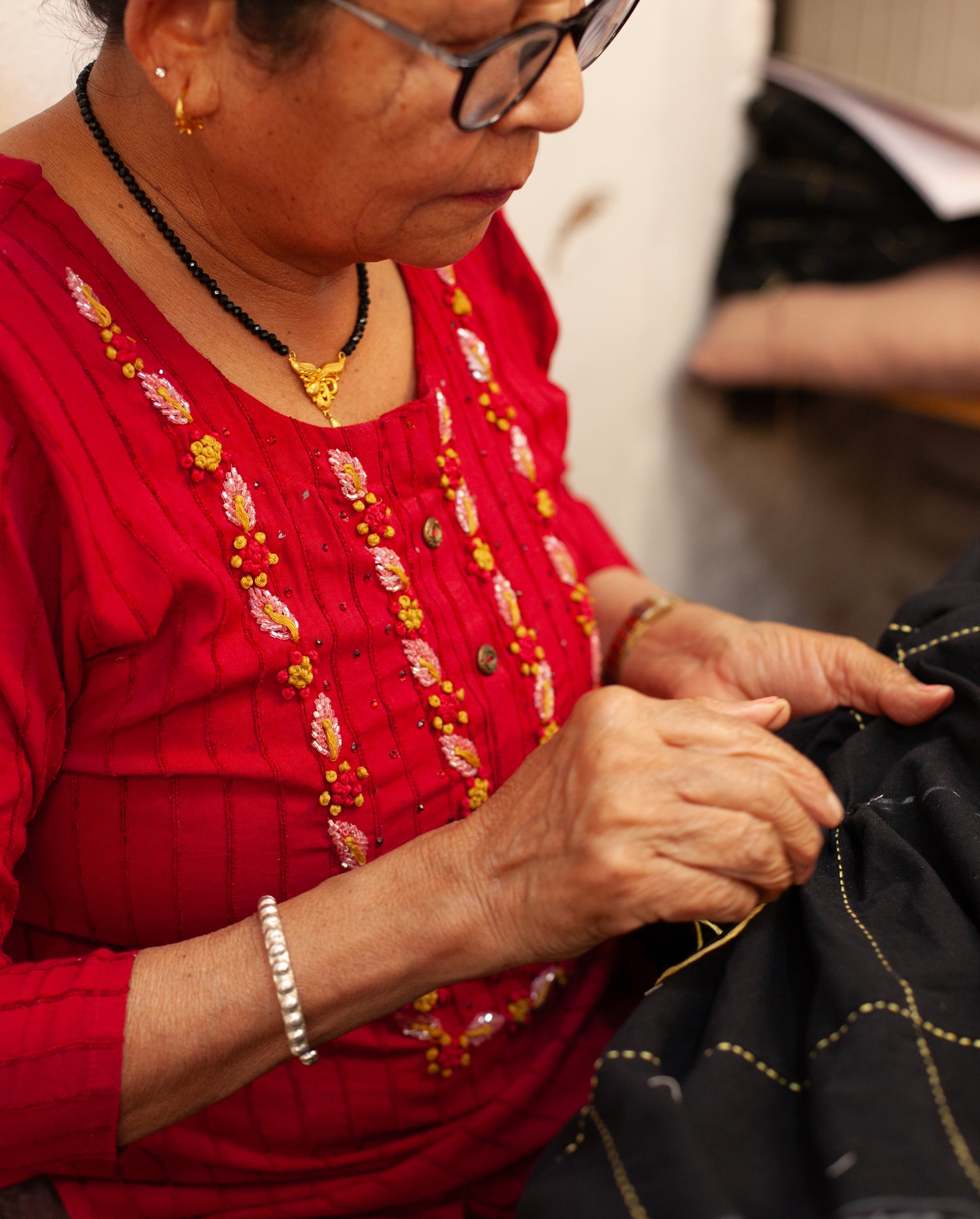
Design
Our collections celebrate slow,
timeless fashion. Each piece pairs classic silhouettes with modern details,
handcrafted by Nepali artisans using traditional techniques. Designed to last
season after season, our clothing honors tradition while embracing contemporary
style.
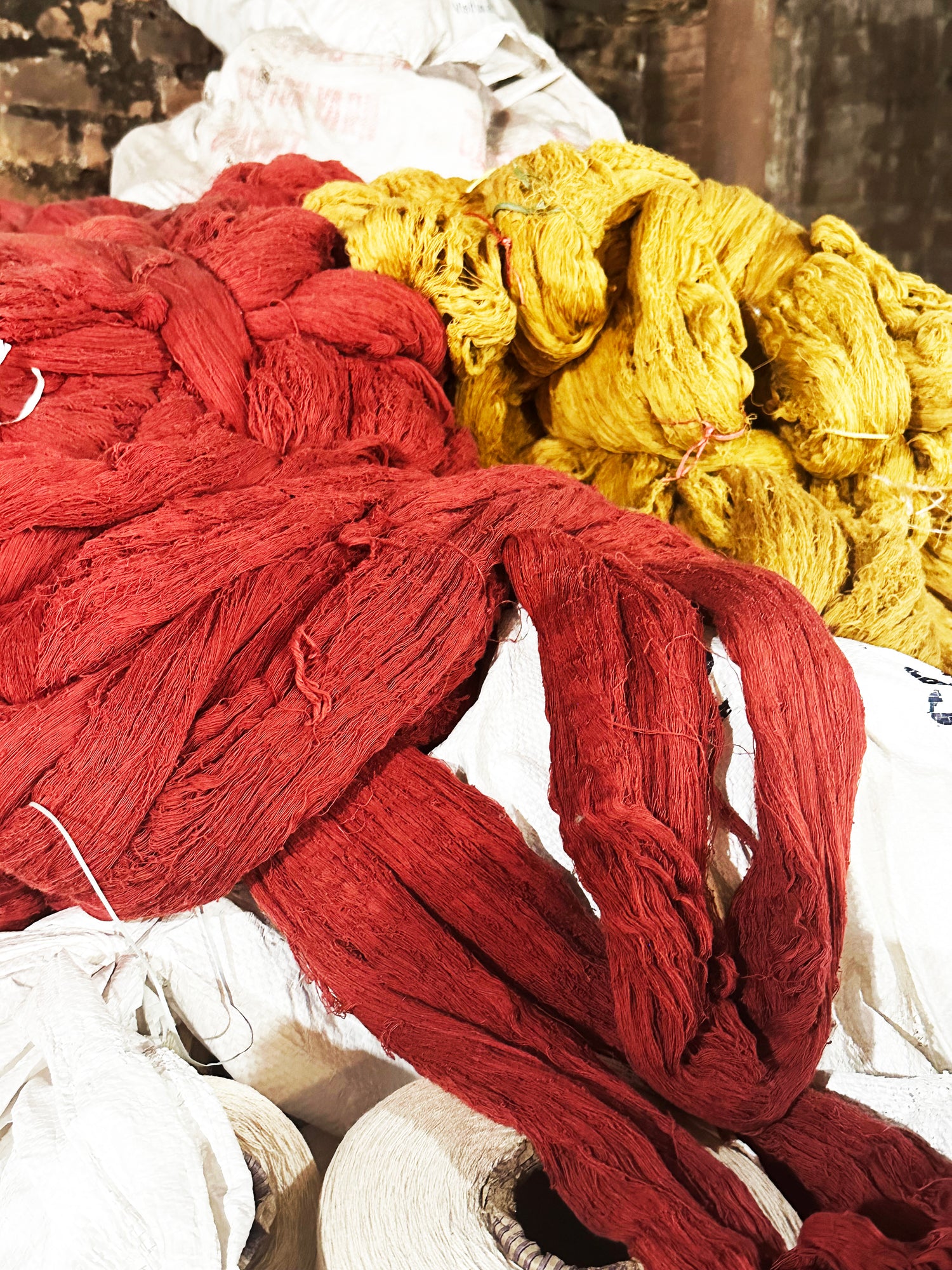
Natural Material
We use ecofriendly, biodegradable fabrics cotton, hemp, bamboo, and linen, dyed with low-impact, azo-free colors. Accessories are crafted from horn, bone, coconut shell, and metal. Even our packaging and shipping prioritize minimal waste and eco-friendly materials.
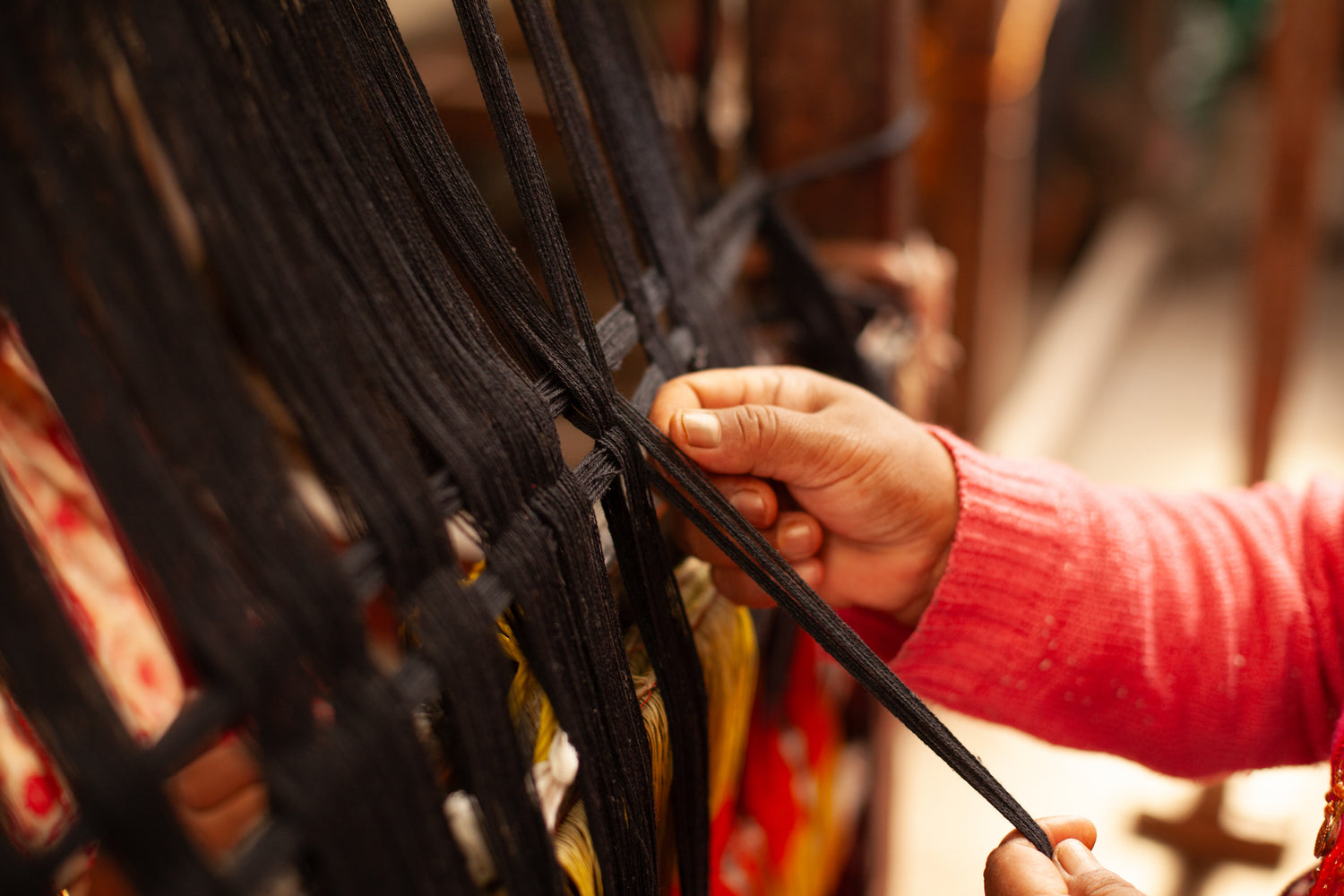
Made in Nepal
Ekadesma’s fabrics are woven locally on handlooms and semi-powered looms, then sewn in our vertical studio in Kathmandu. Since 2011, we’ve partnered with small weaving businesses and 25 artisans, most of them women, preserving traditional crafts and sustaining livelihoods.
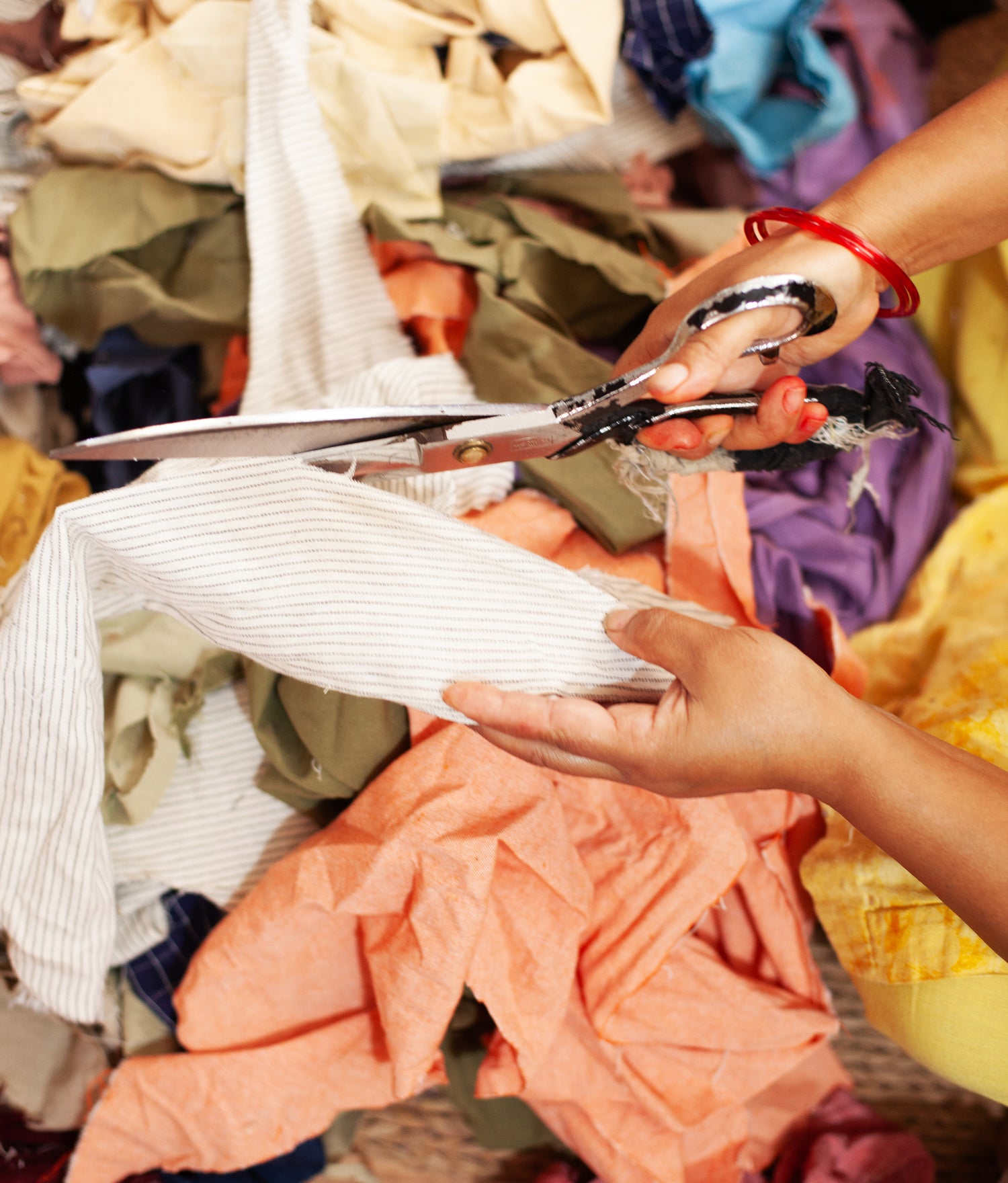
Zero waste
Sustainability is at the heart of everything we do. We follow a circular model, upcycling fabric scraps into new products and donating remnants to local businesses for mattress and pillow inserts. Through this approach, we’ve diverted over more than 12,000 pounds of textile waste from landfills, conserving resources and promoting responsible fashion.
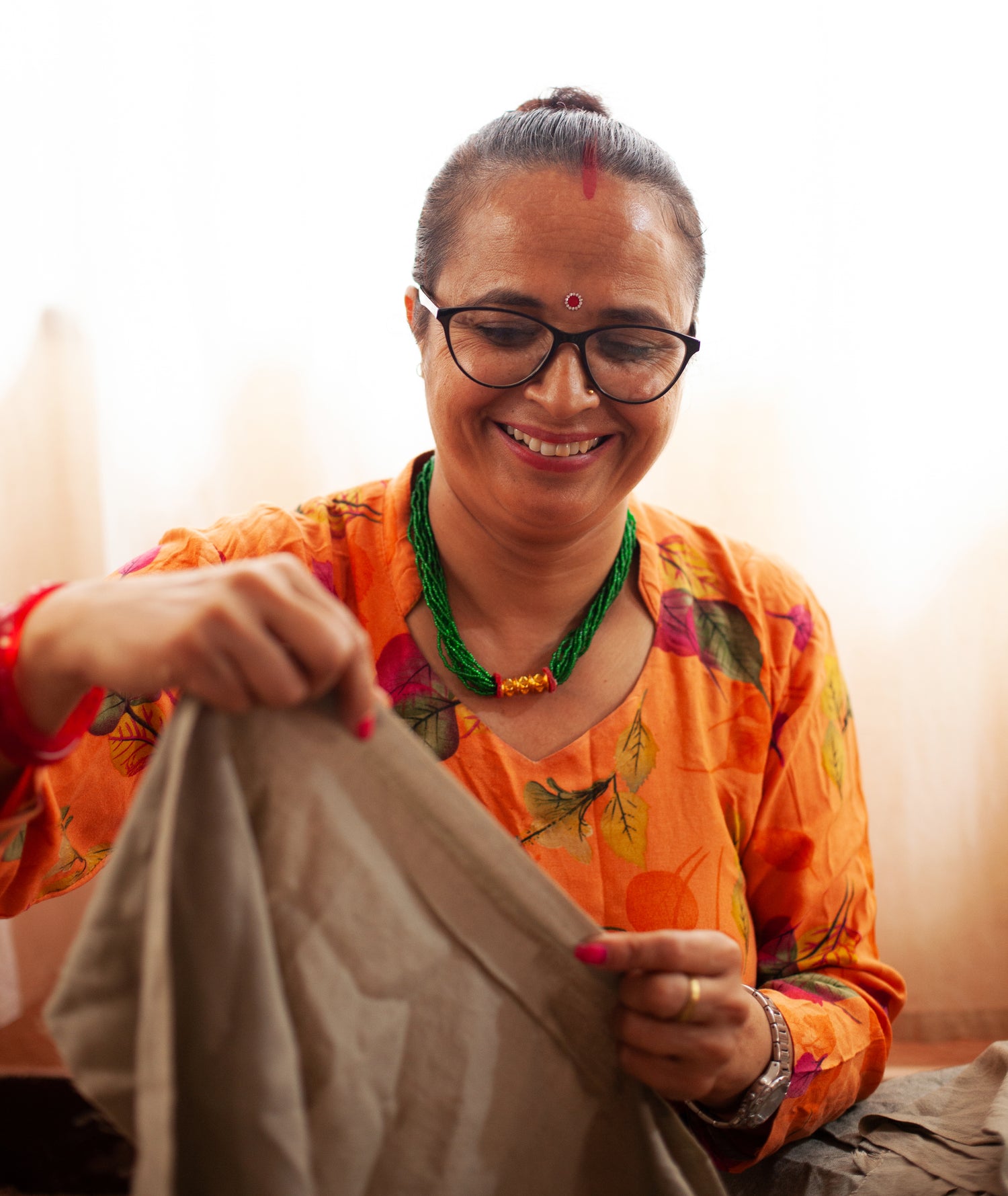
Women Empowerment
As a women-led enterprise, we create pathways for financial independence. From
training 40 women to employing 15 in our studio, we provide skills, fair wages, and financial literacy to empower marginalized
communities.
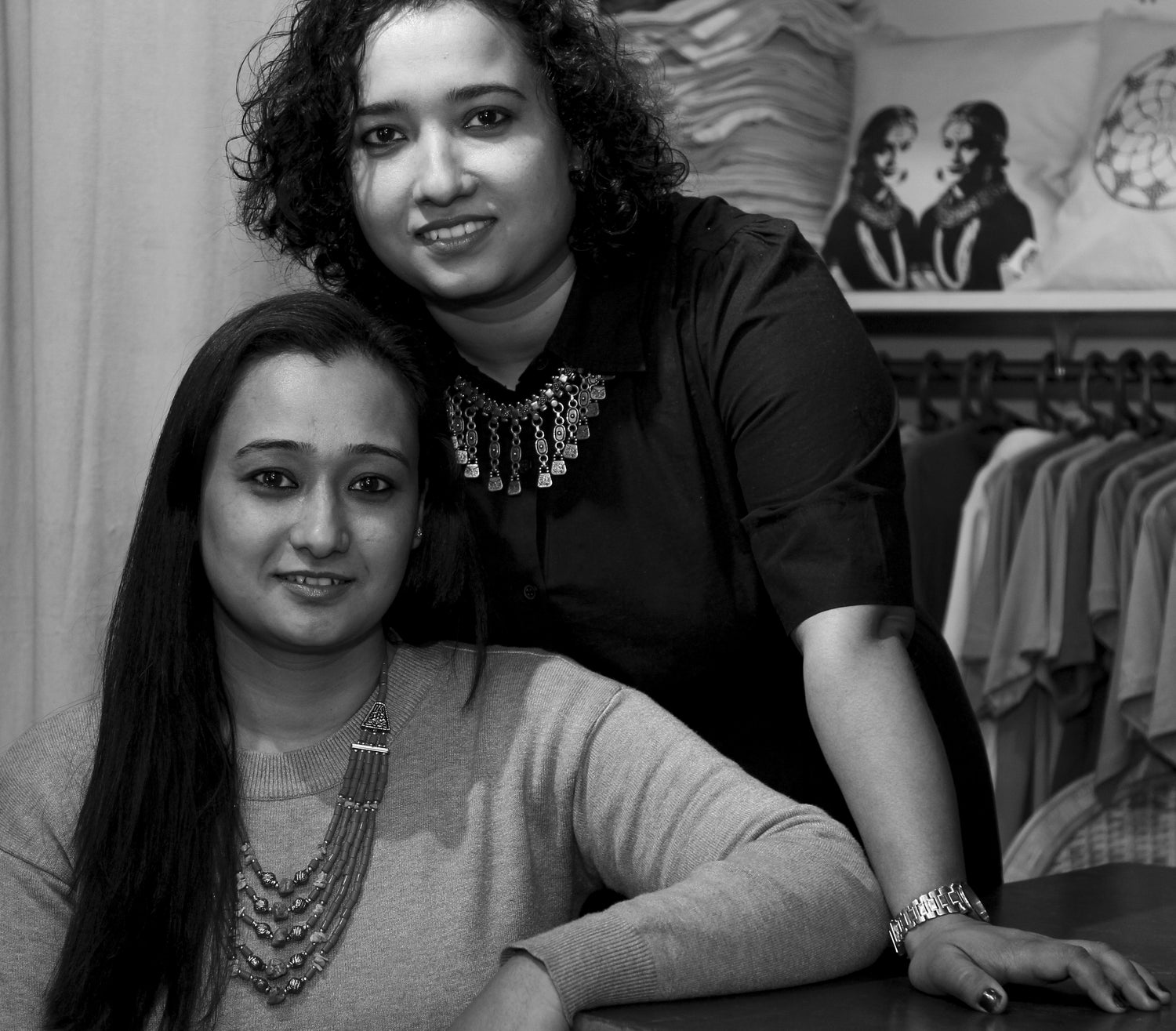
Founders Story
Ekadesma was founded in 2011 by sisters Alpaja, a fashion designer, and Anuja, a business graduate, who shared a vision of blending eco-fashion with social impact.
The brand began as a small store in Thamel, Kathmandu, launched with a loan from their father and a desire to revive Nepal’s natural textiles. Their mission deepened after helping a woman affected by the 2015 earthquake, strengthening their commitment to artisans and communities.
Today, Ekadesma celebrates Nepal’s traditional textile craftsmanship, creating timeless, comfortable, artsy, effortless, and ageless designs. We empower artisans, uplift communities, and challenge the fast fashion cycle, crafting pieces that honor people, the planet, and Nepal’s rich heritage.
